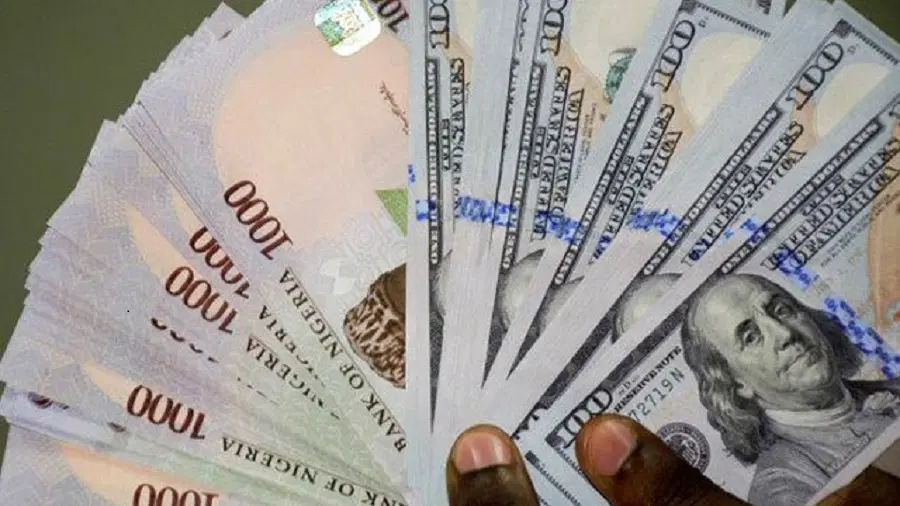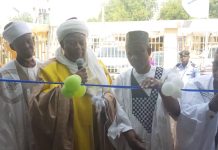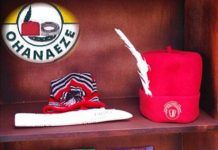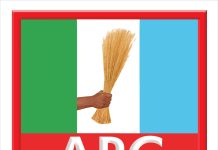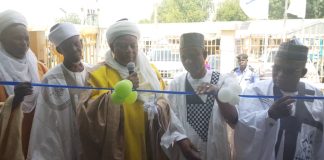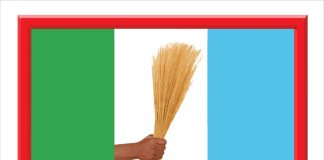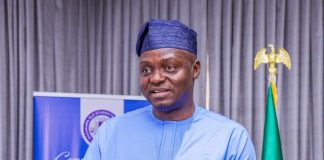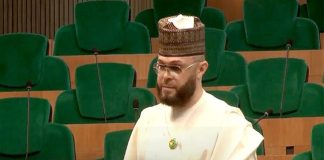🌿 Ruzu Non-Alcoholic Herbal Bitters
Ruzu Non-Alcoholic Herbal Bitters is a natural health supplement specially formulated to:
- ✅ Promote general wellness
- ✅ Detoxify the body
- ✅ Support the treatment of various ailments
Made from a powerful blend of 100% organic and medicinal herbs, Ruzu is completely alcohol-free, making it ideal for:
- 👪 All age groups
- 🌱 Health-conscious individuals
- 🌿 Anyone seeking non-alcoholic herbal remedies
Whether you're looking to boost your vitality, cleanse your system, or support healing the natural way, Ruzu Bitters offers a trusted herbal solution.
Dr. Paul Alaje, a specialist on economic policy, has cautioned that the unchecked influx of cash during election cycles is directly related to Nigeria’s ongoing inflationary pressures and post-election economic instability. Speaking during a two-day training session at the Premium Times Training Academy in Abuja, the Chief Economist claimed that political spending practices have consistently eroded the country’s reserves and caused exchange rate instability.
According to Alaje, who provided a thorough study of Nigeria’s fiscal vulnerabilities, years of excessive borrowing without commensurate economic growth have caused Nigeria’s debt service ratio to increase well over acceptable global standards.
He claims that over the past ten years, Nigeria’s borrowing rate has increased by an average of 20% per year, while economic growth has stayed at 3%, indicating that loans taken out during that time have had no discernible effect.
“We shouldn’t pay off debt with more than one-third of our overall income. Nigeria is significantly more than the guideline, which should be about 33.3%, he said.
“The impact on the economy should result in at least 6-7% GDP growth if you are borrowing at 20%. However, for many years, we have been recording less than 3%.
Alaje attributed the limited effect of borrowing to inefficient use of loan profits, claiming that too much of Nigeria’s debt-funded spending is diverted through corruption or goes into ongoing expenses or administrative costs rather than being used for profitable capital projects.
In order to improve borrowing circumstances, he encouraged the National Assembly to make sure that any additional loans, whether federal or state, flow straight into capital projects that have already been approved and have the potential to boost the economy.
“We are borrowing to fund consumption, not production, if our revenue projections cannot cover recurrent expenditure,” he stated.
There are still administrative elements in our capital expenditures that do not correspond to infrastructure. Only roads, railroads, and other vital infrastructure that increases production should be borrowed.
He pointed out that Nigeria’s goal of becoming a $1 trillion economy by 2030 will necessitate annual GDP growth of 15–17%, which is only achievable if borrowing is linked to extensive infrastructure that boosts productivity both nationally and regionally.
Alaje linked Nigeria’s frequent currency crises to large dollar withdrawals and political cash transfers during election years, claiming that since 1999, the practice has exacerbated inflation and devalued the naira following each election cycle.
I have been monitoring election expenditures since 1998. During elections, the amount of money coming into the economy always increases, he claimed.
2010, 2014, and 2023 were the worst years. Politicians destabilize the currency rate by stealing dollars from the reserves and pumping them into the Bureau de Change market. The economy starts to plummet after elections.
Due to large financial infusions by political players, he continued, the pre-election year frequently records the fastest economic growth. However, Nigeria sees a slowdown, instability, and spikes in inflation just after elections, which are exacerbated by shocks to the world economy.
“Prohibit Election-Related Dollar Spending”
Alaje suggested a stringent legal prohibition on the use of foreign currency in political campaigns in order to lessen the harm.
He declared, “INEC and the National Assembly must mandate that all election expenditures be made in naira.”
“The EFCC ought to have the authority to monitor and prosecute anyone who spends money on elections. We can only stabilize the economy in this way following the elections.
Alaje added that coordinated regional economic zones, such as those in the Southwest and North-Central, would spur rapid industrialization akin to China’s growth model and urged governors to duplicate the infrastructural expansion witnessed in Lagos and Abuja throughout the country.

